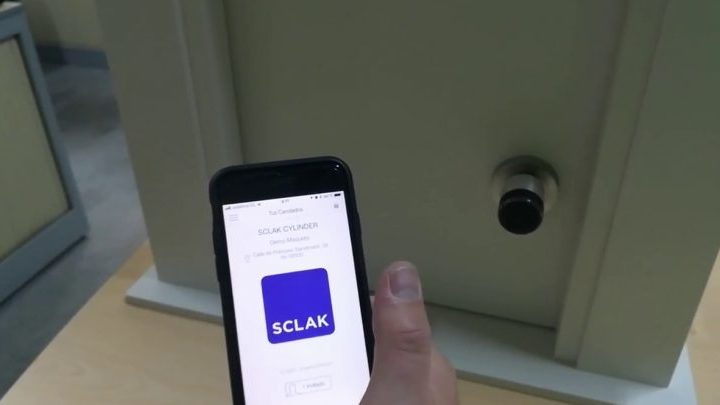SCLAK is a digital access management and control system that allows you to transform a normal lock into a “smart lock” that can be controlled via smartphone.
House keys goodbye. The technology arrives in the car of those who never remember where they left the keys or are forced to rummage for hours in the bag (maybe in the rain) in front of the lock. SCLAK, an innovative company founded in 2014 and operating in the field of Internet of Things, has launched on the market an innovative access management and control system that allows you to transform the front door into a “smart lock” controllable via smartphone. Thanks to this technology, therefore, you can control access to your apartment or office from your smartphone. SCLAK is compatible with electric, electromagnetic, electromechanical or mechatronic locks of all major European brands. According to its creators, it is “a completely different but more flexible and secure way of managing a well-established habit such as opening and closing a door, a locker or a gate, whether at home or in the office or shop”.
How a SCLAK lock works
The innovative SCLAK technology makes it possible to integrate any type of electrified opening or lock through an electronic device, a mobile application and a digital platform from which access can be managed and controlled. SCLAK Digital Keys, which can be generated through the smartphone application, can be sent via e-mail or sms, can be customised and activated even for limited periods of time (fixed days and times), can be revoked or suspended remotely, with entry notifications to keep track of use. The scenarios of use of SCLAK technology are many: residences, offices, shops, hospitality (hotel and non-hotel), parking, coworking, bike sharing and smart mobility. The great flexibility of the system allows to offer smart solutions to the management needs of vehicles and spaces generated by the development of the sharing economy, as well as to the needs of simplification, control and security of access to spaces connected to more traditional sectors.
